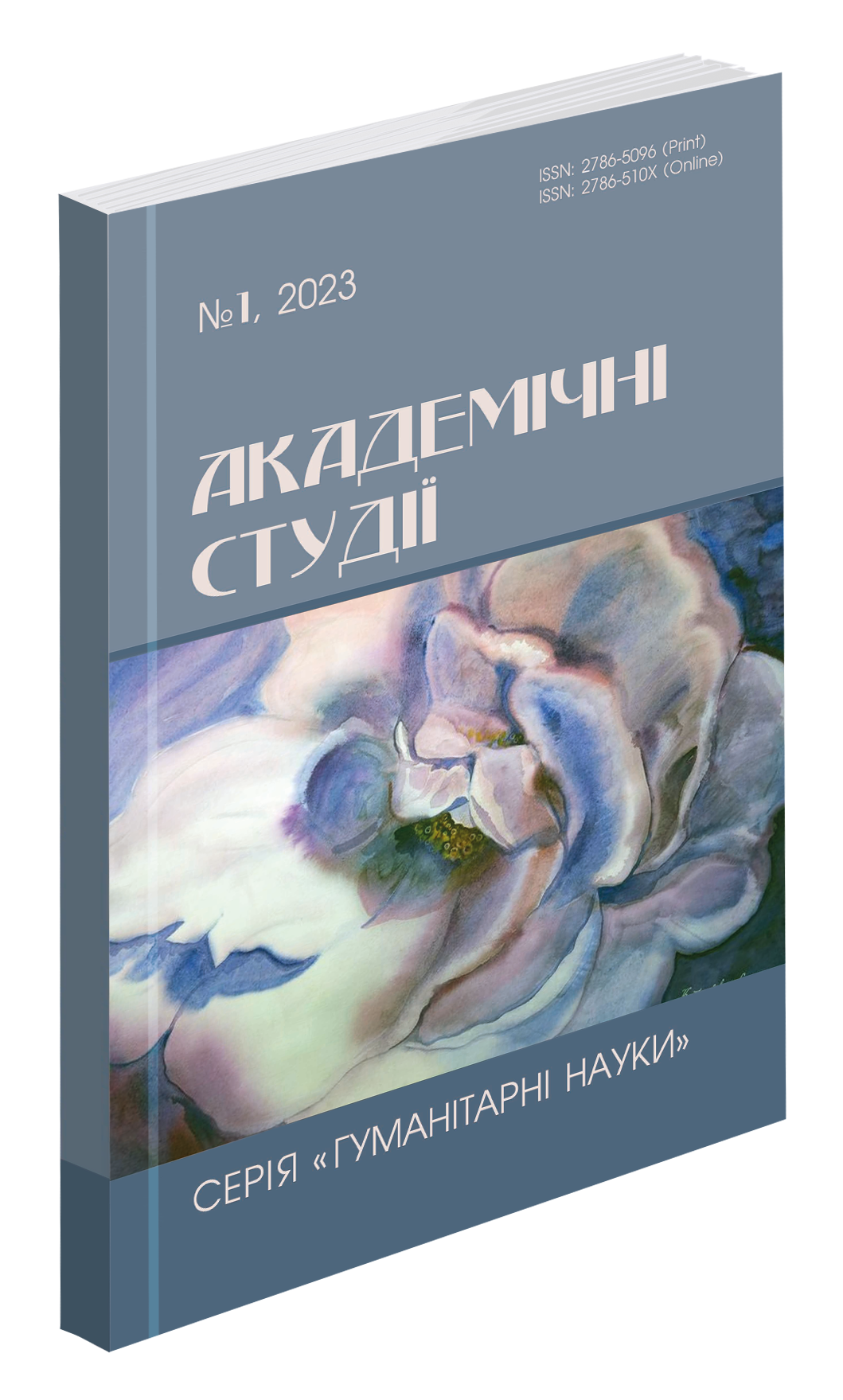Abstract
The article highlights the process of profiling the domain of negative tonality in the literary prose of Margaret Laurence. The conceptual sphere of the novel “The Stone Angel” reflects the author’s cognitive system and adds to the understanding of the processes of individual authorial cognition. It has been revealed that the domain of negative tonality contains 11 emotional concepts (AFFLICTION, ANGER & INDIGNATION, DESPAIR & RESIGNATION, DISGUST, EMBARRASSMENT, ANXIOUSNESS & DISTRESS, FEARS & APPREHENSIONS, HATES, MELANCHOLY & SADNESS, NERVOUSNESS, SHAME) which correlate with basic negative emotions. In the text of the novel, these concepts are verbalized by a variety of linguistic means represented within reference fields which determine the general level of presentation of the context and are the basis for the process of verbalization. An Automated Content Analysis allows for defining the degree of semantic proximity between reference fields representing negative emotions and those, verbalizing the rest of the conceptual space of the novel, as relative. This way psychological, physiological, and social reasons, sources, and consequences for the protagonist’s affliction, anger, indignation, despair, disgust, embarrassment, distress, fear, hate, melancholy, nervousness, and shame are indicated. The data show that language means verbalizing the domain of negative tonality in the text of the novel are represented by lexical units designating emotions and feelings which contribute to the pessimism of narration: anger, angry, fury, to rage, rage, enraged, to disgust, disgust, disgusting, anxious, to hurt, to worry, worry, apprehension, to fear, fear, afraid, panic, terror, to scare, scare, shame, to shame, ashamed, shameful, affliction, martyrdom, despair, dismay, chagrin, mortification, to embarrass, embarrassment, to humiliate, humiliation, to hate, sad, to sadden, to regret, regret, self-pity. It has been proved that Margaret Laurence sees her main character as a person who is capable of experiencing a whole range of pessimistic feelings and emotions. Hagar Shipley’s emotional picture of the world reflects the relationship between the emotional competence of the individual and social and physiological factors that determine the formation of the protagonist’s emotional intelligence.
References
Бессонова О. Л. Еволюція засобів вербалізації концептів негативних емоцій в англомовному художньому дискурсі XVIII–XXI ст. Науковий вісник Міжнародного гуманітарного університету. Серія : Філологія. 2014. Вип. 10(1). С. 109–113.
Борисов О. О. Мовні засоби вираження емоційного концепту страх: лінгвокогнітивний аспект (на матеріалі сучасної англомовної художньої прози) : дис. … канд. філол. наук: 10.02.04 / Житомирський держ. ун-т. Житомир, 2005. 252 с.
Вербицька А. Е. Концепт DISTRESS / ДИСТРЕС в англомовному медіа-дискурсі: когнітивно-комунікативний аспект : дис. ... канд. філол. наук: 10.02.04 / Харків. нац. у-тет ім. В. Каразіна. Харків, 2018. 277 с
Савчук Р. I. Особливості побудови концептуального мегапростору художньої прози Ф. Саган. Науковий вісник Чернівецького університету. Романо-слов’янський дискурс. 2009. Вип. 484. С. 66–69.
Скрипченко О. В., Долинська Л. В., Огороднійчук З. В. Загальна психологія : підручник. Київ : Либідь, 2005. 464 с.
Izard C. E. The Psychology of Emotions. New York, NY: Plenum Press, 1991. 472 p.
Malimon, L., Pavliuk, A., Yefremova, N., Boichuk, V., Semeniuk, A., Khnykina, O., Sheludchenko, S., Torosian, O., Rohach, O., Navrotska, I., Honcharuk, S., Vasylenko, M., & Potapenko, L. (2022). Emotional Intelligence in the Context of Linguodidactics and Linguocultural Studies. BRAIN. Broad Research in Artificial Intelligence and Neuroscience, 13(4), 514–528. https://doi.org/10.18662/brain/13.4/402

